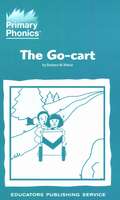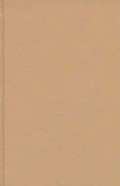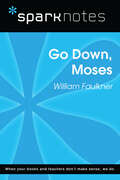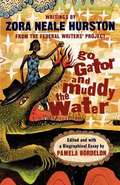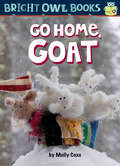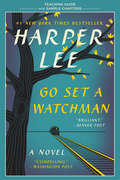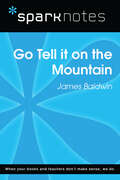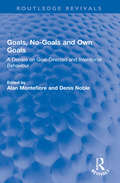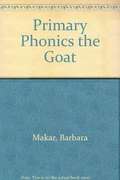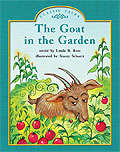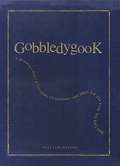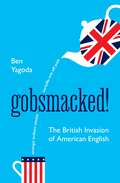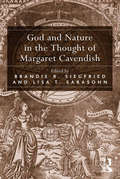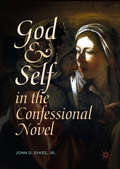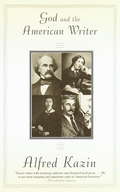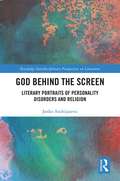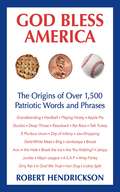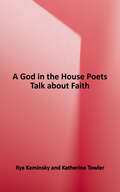- Table View
- List View
Go Down, Moses: The Miscegenation of Time
by Arthur F. KinneyNo. 148 in the Twayne's Masterwork Series. This book offers a detailed analysis of Faulkner's book Go Down, Moses. It includes insights in race relationships during Faulkner's time, as well as exploring Faulkner's own mixed-race heritage.
Go Down, Moses (SparkNotes Literature Guide Series)
by SparkNotesGo Down, Moses (SparkNotes Literature Guide) by William Faulkner Making the reading experience fun! Created by Harvard students for students everywhere, SparkNotes is a new breed of study guide: smarter, better, faster.Geared to what today's students need to know, SparkNotes provides:chapter-by-chapter analysis explanations of key themes, motifs, and symbols a review quiz and essay topics Lively and accessible, these guides are perfect for late-night studying and writing papers.
Go for The Code (A primer for the Explode The Code® Series #C)
by Nancy HallCovering early literacy skills and letter formation, students will learn letters through visual, auditory, and kinesthetic activities that include tracing, matching, tracking, copying, and following directions. Book C teaches students initial and final consonants c, g, l, q, v, w, x, y, and z with an emphasis on phonemic awareness and sound-letter correspondence.
Go Gator and Muddy the Water
by Zora Neale Hurston Pamela Bordelon"Researching a work on the Florida Federal Writers' Project, Pamela Bordelon discovered writings in the collection that were unmistakably from the hand of Zora Neale Hurston, author of Their Eyes Were Watching God and one of the leading writers of the Harlem Renaissance. Most of these works are not well known. All of Hurston's novels draw upon her deep interest in folklore, particularly from Florida, her home state. Here we see the roots of that work, from the captivating folktale of the monstrous alligator living in a local lake to her recording of folk songs and her work on children's games and the black church. Of great interest are the transcriptions of a rare interview with Hurston singing gambling and work songs and telling how she learned them." --BOOK JACKET. Title Summary field provided by Blackwell North America, Inc. All Rights Reserved
Go Home, Goat (Bright Owl Books)
by Molly CoxeGoat is cold. He needs a home in the snow! This fun photographic easy-to-read story features the long "o" vowel sound. Kane Press's new series of super simple easy-to-reads, Bright Owl Books, adds Molly Coxe's five fun photographic long vowel stories, which are each only around 100–200 words. Molly Coxe's stories help kids learn to read by teaching the basic building blocks of reading—vowel sounds. With a note to parents and teachers at the beginning and story starters at the end, these books give kids the perfect start on educational success. Bright Owl Books make bright owl readers!
Go Set a Watchman Teaching Guide: Teaching Guide and Sample Chapters
by Harper Lee Amy JurskisWritten in the 1950s but unpublished until recently, Go Set a Watchman is neither a prequel nor a sequel to To Kill a Mockingbird, and attempting to read it as a simple continuation of the story does not do the work justice. As the adult Jean Louise, "Scout," returns to Macomb to visit Atticus, Go Set a Watchman perfectly captures a young woman, and a world, in painful yet necessary transition out of the illusions of the past—a journey that can only be guided by one’s own conscience. While many characters appear in both novels, some significant characters, like Boo Radley and Hank Clinton, exist in only one of the texts. Go Set a Watchman is also strikingly different in style and tone. Thematically complex and highly allusive, it is a novel that demands active and close reading.This ebook contains sample chapters from Go Set a Watchman and a teaching guide to help educators lead their students through an exploration of the themes, structure, and allusive references in Go Set a Watchman. Questions in the Guided Reading and Discussion section will help highlight the development of plot, character, and theme. Because the text features allusions that students are likely to be unfamiliar with, the guide also includes an index of annotated allusions to help facilitate close reading. Prompts for Writing and Research provide topics for longer writing tasks or research projects. Finally, this guide features an additional section that explores the writer’s craft by looking at both To Kill a Mockingbird and Go Set a Watchman.
Go Tell It on the Mountain (SparkNotes Literature Guide Series)
by SparkNotesGo Tell It on the Mountain (SparkNotes Literature Guide) by James Baldwin Making the reading experience fun! Created by Harvard students for students everywhere, SparkNotes is a new breed of study guide: smarter, better, faster.Geared to what today's students need to know, SparkNotes provides:chapter-by-chapter analysis explanations of key themes, motifs, and symbols a review quiz and essay topics Lively and accessible, these guides are perfect for late-night studying and writing papers.
Go Up, Up, Up
by Miriam Hassan Cindy PeattieTitle contained within StartUp Phonic Core Program. Not Sold Separately
Goals, No-Goals and Own Goals: A Debate on Goal-Directed and Intentional Behaviour (Routledge Revivals)
by Alan Montefiore; Denis NobleFirst published in 1989, Goals, No-Goals and Own Goals presents a stimulating debate between three scientists and three philosophers about the significance and nature of goal-directed and intentional behaviour. At one extreme David McFarland brings into radical question the need for either of these concepts, at least in the scientific study of animal behaviour. At the other extreme, Alan Montefiore argues that such concepts are indispensable to any explication of the meaningful use of language and that we must therefore acknowledge their importance in understanding the nature of human behaviour. Denis Noble uses arguments drawn from computer science and physiology to show that it is incorrect to regard intentions as causes of neural events, even though it is correct to regard intentionality as responsible for our actions. Shawn Lockery outlines how intentional behaviour might be subjected to physiological study. Kathy Wilkes widens the debate by asking some basic questions about the nature of explanation and finally, Daniel Dennett argues how the study of animal behaviour might inform research in Artificial Intelligence. This book will be a useful resource for scholars and researchers of cognitive science, philosophy, psychology, linguistics and physiology.
The Goat in the Garden (Fountas & Pinnell LLI Green #Level G, Lesson 77)
by Linda RossFountas and Pinnell Leveled Literacy Intervention Green System -- 1st Grade
Gobbledygook
by William Wilsonblad: To strike hard or buffet. kring: To focus on with laser-like intensity. stridhana: Under Hindi law, property belonging to a woman. Two of these words and their definitions are right. One word and its meaning have been made up. But which one? Only if you've read this book will you know for sure!* This fun, fascinating book boasts hundreds of obscure, outdated, and outrageous words. You and your friends will spend hours of fun debating, shouting, laughing, and mulling over such obtuse gems as galliardise, telestich, and quidnunc. And you'll have even more fun guessing the lexicographical imposters, scoring points, and outwitting your family and friends. Let the word games begin! *And you won't find out which one is fake unless you buy the book!
Gobbledygook: A Dictionary That's 2/3 Accurate, 1/3 Nonsense - And 100% Up to You to Decide
by William Wilsonblad: To strike hard or buffet.kring: To focus on with laser-like intensity.stridhana: Under Hindi law, property belonging to a woman.Two of these words and their definitions are right. One word and its meaning have been made up. But which one? Only if you've read this book will you know for sure!*This fun, fascinating book boasts hundreds of obscure, outdated, and outrageous words. You and your friends will spend hours of fun debating, shouting, laughing, and mulling over such obtuse gems as galliardise, telestich, and quidnunc. And you'll have even more fun guessing the lexicographical imposters, scoring points, and outwitting your family and friends.Let the word games begin!*And you won't find out which one is fake unless you buy the book!
Gobbledygook
by William Wilsonblad: To strike hard or buffet. kring: To focus on with laser-like intensity. stridhana: Under Hindi law, property belonging to a woman. Two of these words and their definitions are right. One word and its meaning have been made up. But which one? Only if you've read this book will you know for sure!* This fun, fascinating book boasts hundreds of obscure, outdated, and outrageous words. You and your friends will spend hours of fun debating, shouting, laughing, and mulling over such obtuse gems as galliardise, telestich, and quidnunc. And you'll have even more fun guessing the lexicographical imposters, scoring points, and outwitting your family and friends. Let the word games begin! *And you won't find out which one is fake unless you buy the book!
Goblin Market
by Christina RossettiSisters Lizzie and Laura meet the goblin fruit sellers in the evening. Laura eats the fruit and begins to waste away from longing. Lizzie finds a way to trick the goblins and save her sister. Goblin Market was originally published in 1862 and has been republished several times since. At this time, very few stories had heroic females, but this poem provides a female who takes action - she deals with the sly goblins to save her sister, she does not wait passively for someone else to provide the rescue.
Gobsmacked!: The British Invasion of American English
by Ben YagodaA spot-on guide to how and why Americans have become so bloody keen on Britishisms—for good or illThe British love to complain that words and phrases imported from America—from French fries to Awesome, man!—are destroying the English language. But what about the influence going the other way? Britishisms have been making their way into the American lexicon for more than 150 years, but the process has accelerated since the turn of the twenty-first century. From acclaimed writer and language commentator Ben Yagoda, Gobsmacked! is a witty, entertaining, and enlightening account of how and why scores of British words and phrases—such as one-off, go missing, curate, early days, kerfuffle, easy peasy, and cheeky—have been enthusiastically taken up by Yanks.After tracing Britishisms that entered the American vocabulary in the nineteenth century and during the world wars, Gobsmacked! discusses the most-used British terms in America today. It features chapters on the American embrace of British insults and curses, sports terms, and words about food and drinks. The book also explores the American adoption of British spellings, pronunciations, and grammar, and cases where Americans have misconstrued British expressions (for example, changing can&’t be arsed to can&’t be asked) or adopted faux-British usages, like pronouncing divisive as &“divissive.&” Finally, the book offers some guidance on just how many Britishisms an American can safely adopt without coming off like an arse.Rigorously researched and documented but written in a light, conversational style, this is a book that general readers and language obsessives will love. Its revealing account of a surprising and underrecognized language revolution might even leave them, well, gobsmacked.
God and Nature in the Thought of Margaret Cavendish
by Lisa T. Sarasohn Brandie R. SiegfriedOnly recently have scholars begun to note Margaret Cavendish’s references to 'God,' 'spirits,' and the 'rational soul,' and little has been published in this regard. This volume addresses that scarcity by taking up the theological threads woven into Cavendish’s ideas about nature, matter, magic, governance, and social relations, with special attention given to Cavendish’s literary and philosophical works. Reflecting the lively state of Cavendish studies, God and Nature in the Thought of Margaret Cavendish allows for disagreements among the contributing authors, whose readings of Cavendish sometimes vary in significant ways; and it encourages further exploration of the theological elements evident in her literary and philosophical works. Despite the diversity of thought developed here, several significant points of convergence establish a foundation for future work on Cavendish’s vision of nature, philosophy, and God. The chapters collected here enhance our understanding of the intriguing-and sometimes brilliant-contributions Cavendish made to debates about God’s place in the scientific cosmos.
God and Self in the Confessional Novel
by John D. Sykes Jr.God and Self in the Confessional Novel explores the question: what happened to the theological practice of confession when it entered the modern novel? Beginning with the premise that guilt remains a universal human concern, this book considers confession via the classic confessional texts of Augustine and Rousseau. Employing this framework, John D. Sykes, Jr. examines Goethe’s The Sorrows of Young Werther, Dostoevsky’s Notes from Underground, Percy’s Lancelot, and McEwan’s Atonement to investigate the evolution of confession and guilt in literature from the eighteenth century to the early twenty-first century.
God and the American Writer
by Alfred Kazin"God and the American Writer does more to illuminate the fundamental purposes and motivations of our greatest writers from Hawthorne to Faulkner than any study I have read in the past fifty-five years--that is, since the same author's On Native Grounds. --Louis S. Auchincloss This is the culminating work of the finest living critic of American literature. Alfred Kazin brings a lifetime of thought and reading to the triumphant elucidation of his fascinating and slippery subjects: what the meaning of God has been for American writers, and how those writers, from the New England Calvinists to William Faulkner, have expressed it. In a series of trenchant critical studies of writers as divergent as Hawthorne, Melville, Emerson, Lincoln, Whitman, Dickinson, Twain, William James, Eliot, Frost, and Faulkner, Kazin gives a profound sense of each, and his quotations from their works are artfully chosen to pursue the main theme. The centerpiece of the book is the reflection in American writing of the great American tragedy, the Civil War--so deeply involved in the whole complex issue of religion in America. An enthralling book by a major writer. "This is a book about the place of God in the imaginative life of a country that for two centuries countenanced slavery and then engaged in a fratricidal war to end it. For Americans no subject is more compelling or, in its entanglement with the deepest roots of the national soul, more terrible. And no one has ever written as incisively, as movingly, or as unforgivingly about it as Alfred Kazin has here. " --Louis Menand "In the era of willful obfuscation, Alfred Kazin is the good, clear word, a brilliant scholar and an original reader. His latest book, God and the American Writer, which comes fifty-five years after On Native Grounds, proves he has lost nothing and gives us everything he has." --David Remnick "American writers have been born into all sorts of religious sects, but have had to struggle in solitude to make sense of God. Alfred Kazin, a cosmos unto himself, has written brilliantly and affectingly of how a dozen or so of our finest authors--poets, novelists, philosophers, and one president--endured and illuminated that struggle. Kazin is sometimes passionate, even fierce, especially in his discussions of slavery and of his hero (and mine), Abraham Lincoln. But, as ever, Kazin's writing is tempered by an enormous American empathy and by his sense of irony about our country and its spiritual predicaments. Spare, sharp, and immensely learned, God and the American Writer is the most moving volume of criticism yet by our greatest living critic. " --Sean Wilentz
God Behind the Screen: Literary Portraits of Personality Disorders and Religion (Routledge Interdisciplinary Perspectives on Literature)
by Janko AndrijasevicThis interdisciplinary study of literary characters sheds light on the relatively under-studied phenomenon of religious psychopathy. God Behind the Screen: Literary Portrais of Religious Psychopathy identifies and rigorously examines protagonists in works from a variety of genres, written by authors such as Aldous Huxley, Jane Austin, Sinclair Lewis, and Steven King, who are both fervently religous and suffer from a range of disorders underneath the umbrella of psychopathy.
God Bless America: The Origins of Over 1,500 Patriotic Words and Phrases
by Robert HendricksonThe Queen's English has no place across the pond, where a long history of defiance, creativity, and originality has made its way into the everyday vocabulary of Americans coast-to-coast. God Bless America is an informative and entertaining guide to the meaning and history beneath our uniquely American words and phrases. Robert Hendrickson makes it clear that whether you're ordering "fried chicken" or heading out to see a "movie," you are celebrating contributions to the English language made by Americans, both famous and forgotten. With extensive research and a passion for language, Hendrickson furthers our understanding of the familiar and introduces us to the more obscure artifacts of American speech.God Bless America provides the definitions and background for many uniquely American phrases and terms, such as: Bald eagle Boston baked beans Five-and-ten Give 'em hell Lazy Susan Sho' nuff Yankee Doodle And more!A dictionary packed full of historical accounts, etymological peculiarities, and imaginative spirit, God Bless America represents not only the American language but also the American people. This book provides an undeniable resource for travelers, patriots, and Anglophiles from all walks of life.
A God in the House: Poets Talk about Faith
by Ilya Kaminsky Katherine TowlerLiterary Nonfiction. Poetry. Editors Ilya Kaminsky and Katherine Towler have gathered conversations with nineteen of America's leading poets, reflecting upon their diverse experiences with spirituality and the craft of writing. Bringing together poets who are Christian, Buddhist, Jewish, Muslim, Pagan, Native American, Wiccan, agnostic, and otherwise, this book offers frank and thoughtful consideration of themes too often polarized and politicized in our society. Participants include Li-Young Lee, Jane Hirshfield, Carolyn Forché, Gerald Stern, Christian Wiman, Joy Harjo, and Gregory Orr, and others, all wrestling with difficult questions of human existence and the sources of art.
